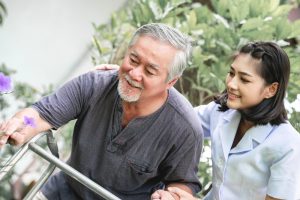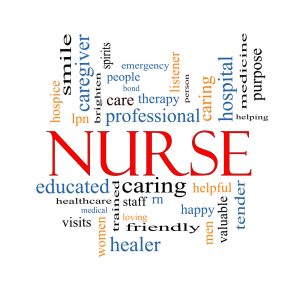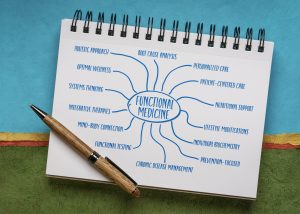By – James M. Katz, BA
Holistic nursing practice is transforming healthcare by addressing the physical, emotional, and spiritual needs of patients. This comprehensive approach to nursing care recognizes the interconnectedness of mind, body, and spirit, emphasizing the importance of treating the whole person rather than just symptoms. As healthcare evolves, holistic nursing has gained recognition for its ability to improve patient outcomes and enhance the overall well-being of both patients and nursing professionals.
In this article, we will explore various meditation strategies for stress relief within the context of holistic nursing practice. We’ll delve into the impact of stress on nurses and discuss how mindfulness-based stress reduction techniques can be applied in healthcare settings. The article will also cover specific meditation practices, including breathing techniques, body scan meditation, and loving-kindness meditation, as tools to foster resilience and promote self-care among nursing professionals. By incorporating these holistic approaches, nurses can better manage their own stress while providing compassionate, patient-centered care.
Key Takeaways
- Meditation helps reduce stress and anxiety in patients.
- It can improve pain management and help patients feel better overall.
- Meditation supports emotional well-being and mental health.
- Nurses can use simple techniques like guided meditation and mindfulness exercises.
- Training and education are important for nurses to effectively use meditation in their practice.
Understanding Holistic Nursing Practice
Definition and Principles
Holistic nursing is a comprehensive approach to healthcare that focuses on the whole person, recognizing the interconnectedness of their physical, emotional, spiritual, and social aspects. The American Nursing Association (ANA) defines holistic care as an integration of body, mind, emotion, spirit, sexual, cultural, social, energetic, and environmental principles and modalities to promote health, increase well-being, and actualize human potential. This approach has its roots in the teachings of Florence Nightingale, who emphasized the principles of holism: unity, wellness, and the interrelationship of human beings and their environment.
The philosophy of holistic care is based on unity and a humanistic view of the patient. It considers the patient’s physical, social, spiritual, emotional, and economic needs, as well as their response to illness and its effect on their ability to meet self-care needs. Holistic nursing is not merely a set of practices but also an attitude, a philosophy, and a way of being that requires nurses to integrate self-care, self-responsibility, spirituality, and reflection in their lives.
Benefits for Nurses and Patients
Holistic nursing has significant benefits for both nurses and patients. For patients, this approach has been found to be an effective way to prevent diseases and death, as well as improve the quality of healthcare provided. It enhances patient satisfaction by improving the quality of care and addressing all aspects of a person’s health. Holistic care can contribute to patients’ satisfaction with healthcare and help them to accept and assume self-responsibility.
For nurses, practicing holistic care can lead to increased feelings of personal development, satisfaction, and a sense of being able and useful. This approach can also contribute to nurses staying in their profession. Holistic nursing enables nurses to consider their patients’ whole needs and identify their various spiritual, cultural, physical, and social needs.
Integration with Conventional Nursing
Holistic nursing is unique in that it can be practiced within all other nursing specialties by applying the principles of holism to client care. It complements conventional nursing practices by incorporating a wide range of approaches, including drugs, surgery, education, communication, self-care, and complementary treatments.
The American Holistic Nurses Association (AHNA) has developed Standards of Holistic Nursing Practice, which provide guidance for nursing care that meets the intent of holistic nursing. These standards are based on five core values: Holistic Philosophy and Education; Holistic Ethics, Theories, and Research; Holistic Nurse Self-Care; Holistic Communication, Therapeutic Environment and Cultural Competence; and Holistic Caring Process.
Integrating holistic nursing with conventional practices requires nurses to draw on nursing knowledge, theories, research, expertise, intuition, and creativity. This integration allows nurses to become therapeutic partners with individuals, families, and communities. However, it’s important to note that holistic nursing should not be defined solely by the use of alternative modalities. Instead, it’s a way of thinking, reflecting, practicing, and being-in-the-world that can enhance conventional nursing practices.
In 2006, the American Nurses Association officially recognized holistic nursing as a distinct nursing specialty with a defined scope and standards of practice. This recognition distinguishes holistic nursing from general nursing practice by acknowledging its unique contribution to the health and healing of people and society. As healthcare continues to evolve, holistic nursing practices are becoming increasingly important in addressing the complex needs of patients and promoting overall well-being.
The Impact of Stress on Nurses
Nursing is widely recognized as one of the most stressful professions, with nurses facing numerous challenges that can significantly impact their well-being and job performance. The demanding nature of nursing work exposes professionals to various stressors on a daily basis, affecting their physical and mental health, as well as the quality of care they provide to patients.
Common stressors in nursing
Nurses encounter a wide range of stressors in their work environment. One of the most prevalent is psychological or physical violence in the workplace, which has been rated as highly stressful (M = 4.2). Other significant stressors include dealing with death (M = 3.9), lack of personnel (M = 3.9), and a high frequency of patients (M = 3.8). The nursing profession also involves complex job demands, excessive responsibility, and minimal authority, which have been identified as major contributors to stress.
The COVID-19 pandemic has introduced new challenges for nurses’ well-being, imposing additional stressors and exacerbating existing ones. Nurses often find themselves in situations that require them to set aside their own needs and fears to care for others, which can lead to emotional exhaustion and burnout.
Physical and mental health effects
The impact of stress on nurses’ health is substantial and multifaceted. Chronic workplace stress can damage both physical and mental health, ultimately affecting job productivity. Nurses experiencing stress may exhibit various symptoms, including trouble concentrating (M = 4.1), lack of motivation to work (M = 3.4), and entering into conflicts with patients (M = 3.4).
Physical health effects of stress can include chronic fatigue, increased vulnerability to illnesses such as the flu, and an elevated risk of heart disease and high blood pressure. Mental health issues, such as burnout and depression, are common among nurses and can have far-reaching consequences. These issues not only impact nurses’ quality of life and job satisfaction but also increase absenteeism and staff turnover rates.
Burnout and compassion fatigue
Burnout is a prevalent issue among nurses, with an estimated 62% of nurses experiencing burnout. It is characterized by mental and physical exhaustion, cynicism about the job, and reduced efficacy in the workplace. Burnout can lead to a sense of dread about going to work, lack of joy on the job, and chronic fatigue.
Compassion fatigue, distinct from burnout, is defined as a diminished capacity to care resulting from repeated exposure to patient suffering. Nurses experiencing compassion fatigue may struggle to empathize with their patients, feeling removed and focusing primarily on the technical aspects of their work.
Both burnout and compassion fatigue can have severe consequences for patient care. They can lead to general and medication administration errors, poor relationships with patients and coworkers, and lower patient satisfaction. The emotional distress caused by these conditions can also affect nurses’ personal relationships and overall quality of life.
To address these issues, it is crucial for healthcare organizations to implement strategies that support nurses’ well-being and help prevent burnout and compassion fatigue. This may include providing adequate rest periods, promoting work-life balance, offering mental health support, and fostering a positive work environment. By prioritizing nurses’ health and well-being, healthcare institutions can improve both the quality of patient care and the job satisfaction of their nursing staff.
Meditation as a Stress Relief Strategy
Meditation has gained significant attention as a powerful tool for stress reduction, particularly in high-pressure professions like nursing. This practice offers a range of techniques that can help nurses manage the psychological and emotional challenges they face in their daily work.
Benefits of Meditation for Patient Care
Reducing Stress and Anxiety
Meditation is a powerful tool for reducing stress and anxiety in patients. By focusing on the present moment and calming the mind, patients can experience a significant decrease in their stress levels. This practice helps to create a sense of peace and relaxation, which is essential for overall well-being. Nurses who incorporate meditation into their care routines often see patients who are more relaxed and better able to cope with their medical conditions.
Improving Pain Management
Meditation has been shown to be effective in managing pain. Through techniques such as mindfulness and guided imagery, patients can learn to shift their focus away from pain and towards more positive sensations. This can lead to a reduction in the perception of pain and an improvement in quality of life. For patients dealing with chronic pain, meditation offers a non-invasive and empowering way to manage their symptoms.
Enhancing Emotional Well-being
Emotional well-being is a crucial aspect of patient care, and meditation can play a significant role in enhancing it. By practicing meditation, patients can develop a greater sense of self-awareness and emotional balance. This can lead to improved mood, reduced symptoms of depression, and a greater overall sense of happiness. Incorporating meditation into patient care routines can help patients feel more emotionally stable and supported.
Challenges and Solutions in Incorporating Meditation
Overcoming Time Constraints
One of the biggest challenges in incorporating meditation into nursing practice is the lack of time. Nurses often have packed schedules, making it hard to find moments for meditation. However, even short, focused sessions can be beneficial. By integrating brief mindfulness exercises into daily routines, nurses can still experience the calming effects of meditation without needing extensive time commitments.
Addressing Skepticism
Skepticism about the effectiveness of meditation is another hurdle. Some healthcare professionals and patients may doubt its benefits. Educating both staff and patients about the scientific evidence supporting meditation can help overcome this skepticism. Sharing success stories and research findings can make a significant difference in changing perceptions.
Ensuring Cultural Sensitivity
Cultural sensitivity is crucial when introducing meditation practices. Different cultures have varying beliefs and practices related to meditation. It’s important to respect these differences and adapt meditation techniques to be inclusive. By doing so, nurses can ensure that all patients feel comfortable and respected during their meditation sessions.
Types of meditation practices
Meditation practices can be broadly classified into two categories: concentrative (focused attention) and mindfulness (open monitoring). Concentrative meditation involves focusing on a specific mental task, such as repeating a mantra, walking, or breathing. On the other hand, mindfulness meditation, which has gained popularity in the West, emphasizes present-focused awareness without judgment.
Some popular meditation techniques include:
1. Mindfulness-Based Stress Reduction (MBSR): Developed by Jon Kabat-Zinn, this eight-week program has become a clinical and scientific standard.
2. Transcendental Meditation (TM): This technique uses a mantra to transcend one to an effortless state without focused attention.
3. Guided Visualization: This practice involves listening to guided meditations that transport the mind to a peaceful place, resetting one’s mental state.
4. Loving-Kindness Meditation: This technique fosters compassion towards oneself and others, promoting resilience and empathy.
Scientific evidence for stress reduction
Numerous studies have demonstrated the effectiveness of meditation in reducing stress and improving overall well-being. According to the National Center for Complementary and Integrative Health, a review of 36 clinical studies found that meditation led to improved anxiety symptoms in nearly 70 percent of the trials. Additionally, a 2014 review indicated that mindfulness meditation programs may help with anxiety and depression.
Research has shown that meditation can have positive effects on various aspects of health:
1. Psychological stress: Meditation programs can result in small to moderate reductions in multiple negative dimensions of psychological stress.
2. Blood pressure: Meditation may have a positive effect on blood pressure, which is often associated with high stress and anxiety levels.
3. Heart health: A 2012 study published in the American Heart Association’s journal found that African Americans with heart disease who regularly engaged in meditation practices were 48 percent less likely to experience a heart attack, stroke, or death.
4. Pain management and insomnia: Meditation has shown potential benefits in managing pain and improving sleep quality.
Implementing meditation in daily nursing routine
Incorporating meditation into a nurse’s daily routine can be an effective way to combat stress, burnout, and anxiety. Here are some strategies for implementing meditation practices:
1. Start small: Begin with short meditation sessions, such as a five-minute mindfulness break to focus on breathing.
2. Use breaks wisely: Utilize short breaks during shifts for brief meditation or stretching exercises to recharge energy and focus.
3. Create a ritual: Establish a routine before or after shifts to help transition the mind and body into and out of work mode.
4. Utilize technology: Take advantage of smartphone meditation apps, such as the One-Moment Meditation (OMM) app, which offers guided 30-second warm-ups and 1-minute silent meditations.
5. Practice mindful pauses: Before entering a patient’s room, take three deep breaths to center oneself.
6. End-of-shift practice: Use meditation to mentally “clock out” and leave work stresses behind.
7. Address work anxiety: If work-related anxiety interferes with sleep, practice self-affirmations and intentional breathing to activate the parasympathetic nervous system.
By incorporating these meditation practices into their daily routines, nurses can enhance their ability to manage stress, improve their overall well-being, and provide better patient care. The benefits of meditation extend beyond individual stress reduction, potentially creating a safer work environment, reducing burnout and staff turnover, and increasing satisfaction for both staff and patients.
Mindfulness-Based Stress Reduction (MBSR) for Nurses
Overview of MBSR Program
Mindfulness-Based Stress Reduction (MBSR) is a comprehensive approach to managing stress and improving well-being that has gained significant attention in healthcare settings. Developed by Jon Kabat-Zinn in the 1970s, MBSR was initially designed to help patients cope with chronic medical conditions and life’s difficulties. The program has since been adapted for various populations, including healthcare professionals, to address the unique challenges they face in their work environments.
The standard MBSR program consists of eight weekly sessions, each lasting approximately 2.5 hours, with an additional full-day retreat.
Participants are encouraged to practice mindfulness techniques daily, typically for about 45 minutes, to reinforce the skills learned during the sessions. The program aims to enhance awareness of the present moment, teach participants to replace automatic reactions with conscious responses, and improve interpersonal communication.
Research has shown that MBSR can be an effective intervention for improving the psychological functioning of healthcare professionals. Studies have demonstrated its potential to reduce anxiety, depression, and stress among participants. Additionally, MBSR has been found to increase levels of mindfulness and self-compassion in healthcare providers.
Techniques and Exercises
MBSR incorporates a variety of mindfulness techniques and exercises for a holistic nursing practice to help participants develop their awareness and stress management skills. Some of the key practices include:
1. Body Scan: This exercise involves systematically focusing attention on different parts of the body, promoting awareness of physical sensations and relaxation.
2. Mindful Breathing: Participants learn to focus on their breath, using it as an anchor to bring attention back to the present moment.
3. Sitting Meditation: This practice involves observing thoughts and sensations without judgment, gently redirecting attention to the breath when the mind wanders.
4. Mindful Movement: Incorporating gentle yoga poses and stretches, this exercise helps participants become more aware of their body and its movements.
5. Informal Mindfulness Practices: These involve bringing mindful awareness to everyday activities, such as eating, walking, or engaging in routine tasks.
Adapting MBSR for Healthcare Settings
While the benefits of MBSR for healthcare professionals are well-documented, implementing the program in healthcare settings can present challenges. High attrition rates and difficulties in attendance have been reported in some studies, with one citing a 44% intervention drop-out rate. To address these issues, researchers have explored adaptations of the traditional MBSR program to better suit the needs of healthcare professionals.
One promising adaptation is the telephone-based MBSR program. This format offers several advantages, including:
1. Enhanced convenience: Participants can join sessions from home, eliminating the need for travel and reducing scheduling conflicts.
2. Increased flexibility: The telephone-based format allows for easier attendance and potentially reduces stress associated with participating in the program.
3. Greater anonymity: This format may provide a sense of privacy that some healthcare professionals value, potentially increasing engagement and reducing concerns about confidentiality.
Preliminary studies on telephone-based MBSR programs have shown positive results, with participants experiencing improvements in depressive symptoms and overall distress levels. While more research is needed to confirm the efficacy of this adapted format, it presents a promising solution to the challenges of implementing MBSR in healthcare settings.
Another adaptation that has shown promise is the use of abbreviated MBSR programs. Research suggests that shortened versions of the traditional 8-week program can be as effective in reducing stress and improving psychological functioning among healthcare professionals. These adaptations may be particularly valuable in healthcare environments where time constraints are a significant barrier to participation.
By offering flexible and accessible MBSR programs, healthcare organizations can provide their staff with valuable tools to manage stress, improve well-being, and ultimately enhance the quality of patient care.
Breathing Techniques for Instant Calm
Breathing techniques have gained recognition as powerful tools for managing stress and promoting relaxation in various high-pressure professions, including nursing. These techniques offer a range of benefits, from reducing anxiety to improving overall well-being. Three effective breathing methods that can provide instant calm are diaphragmatic breathing, the 4-7-8 breathing method, and box breathing.
Diaphragmatic Breathing
Diaphragmatic breathing, also known as belly breathing or abdominal breathing, is a fundamental technique that engages the diaphragm, a crucial muscle for respiration. This method involves breathing deeply into the lower belly, allowing the abdomen to expand and contract with each breath. By focusing on the diaphragm, individuals can breathe more efficiently and experience numerous benefits.
The practice of diaphragmatic breathing has been shown to lower heart rate and blood pressure, decrease muscle tension, and increase blood oxygenation. For those dealing with gastrointestinal (GI) symptoms, this technique offers specific advantages. The activation of the diaphragm creates a gentle massaging action on internal organs like the intestines and stomach, which can help reduce abdominal pain, urgency, bloating, and constipation.
To practice diaphragmatic breathing:
1. Sit or lie in a comfortable position.
2. Place one hand on the chest and the other on the abdomen.
3. Inhale through the nose for about 4 seconds, feeling the abdomen expand.
4. Hold the breath for 2 seconds.
5. Exhale slowly through the mouth for about 6 seconds.
6. Repeat for 5-15 minutes.
4-7-8 Breathing Method
The 4-7-8 breathing technique, developed by Dr. Andrew Weil, has its roots in the ancient yogic practice of pranayama. This method involves a specific pattern of inhaling, holding the breath, and exhaling, which can help calm the mind and body. The technique has gained popularity for its potential to reduce anxiety and improve sleep quality.
To practice the 4-7-8 breathing method:
1. Sit in a comfortable position with your back straight.
2. Place the tip of your tongue behind your upper front teeth.
3. Exhale completely through your mouth, making a whooshing sound.
4. Close your mouth and inhale quietly through your nose for 4 seconds.
5. Hold your breath for 7 seconds.
6. Exhale forcefully through your mouth for 8 seconds, making a whooshing sound.
7. Repeat the cycle for 3-4 rounds.
This technique can help activate the parasympathetic nervous system, promoting a state of relaxation and reducing stress levels. Regular practice of 4-7-8 breathing may lead to improved stress management and better sleep quality.
Box Breathing Technique
Box breathing, also known as square breathing or four-square breathing, is a simple yet powerful technique used by individuals in high-stress professions, such as soldiers, police officers, and nurses. This method involves equal counts for inhaling, holding the breath, exhaling, and holding again, creating a “box” pattern.
To practice box breathing:
1. Sit comfortably with your back supported and feet on the floor.
2. Exhale slowly through your mouth, emptying your lungs.
3. Inhale slowly through your nose for 4 seconds.
4. Hold your breath for 4 seconds.
5. Exhale through your mouth for 4 seconds.
6. Hold your breath for 4 seconds.
7. Repeat the cycle for 3-5 minutes or until you feel calm.
Box breathing has been shown to reduce stress, improve mood, and enhance concentration. Research suggests that this technique can help lower cortisol levels and increase attention span. Regular practice of box breathing may even change how the body responds to future stressful situations, making it a valuable tool for long-term stress management.
By incorporating these breathing techniques into their daily routines, nurses and other healthcare professionals can effectively manage stress, improve their well-being, and enhance their ability to provide compassionate care to patients.
Body Scan Meditation for Physical Relaxation
Body scan meditation is a powerful technique that can help nurses manage stress, improve self-awareness, and promote physical relaxation. This practice involves systematically focusing attention on different parts of the body, promoting awareness of physical sensations and relaxation. By incorporating body scan meditation into their daily routines, nurses can effectively address the physical and emotional challenges they face in their demanding profession.
Step-by-step guide
To practice body scan meditation, follow these steps:
1. Find a comfortable position, either lying down or sitting with your back supported.
2. Close your eyes and take a few deep breaths to center yourself.
3. Begin by bringing awareness to your body as a whole.
4. Start at the top of your head and mentally “scan” down your body, paying attention to each area.
5. Notice any sensations, feelings, or discomfort in each part of your body.
6. When you encounter areas of tension, focus your attention on them and breathe into the sensation.
7. Visualize the tension leaving your body through your breath.
8. Continue scanning through your entire body, from head to toe.
9. If your mind wanders, gently bring your attention back to the area you were focusing on.
10. Complete the scan by taking a few deep breaths and slowly opening your eyes.
It’s important to note that there is no right or wrong way to perform a body scan meditation. The goal is not to achieve a particular state but to develop awareness of your physical sensations and their connection to your emotional state.
Benefits for nurses
Body scan meditation offers numerous benefits for nurses, including:
1. Reduced stress: Regular practice of body scan meditation for at least eight weeks has been shown to lower cortisol levels, the body’s primary stress hormone.
2. Improved sleep quality: By helping to release tension and promote relaxation, body scan meditation can enhance sleep quality, which is crucial for nurses working long shifts.
3. Decreased anxiety: Recognizing and releasing physical tension can help nurses manage anxiety more effectively.
4. Enhanced self-awareness: Body scan meditation allows nurses to tune into their physical and emotional states, promoting better self-care.
5. Pain management: While it may not eliminate pain entirely, body scan meditation can help nurses change their relationship with pain and develop better coping strategies.
6. Improved focus: Like other mindfulness practices, body scan meditation can enhance concentration and attention skills.
7. Activation of the parasympathetic nervous system: This practice helps activate the body’s relaxation response, promoting overall well-being.
Incorporating body scans during breaks
Nurses can integrate body scan meditation into their daily routines, even during short breaks at work. Here are some strategies for incorporating this practice:
1. Mini body scans: Perform quick body scans lasting just a few seconds to release tension during busy shifts.
2. Morning or evening practice: Some nurses find it helpful to do a body scan first thing in the morning or before bed to bookend their day with relaxation.
3. Use guided meditations: When starting out, nurses can use apps, podcasts, or YouTube videos for guided body scan meditations.
4. Practice during daily tasks: Incorporate body awareness into routine activities like handwashing or walking between patient rooms.
5. Set reminders: Use visual cues or phone reminders to prompt regular check-ins with your body throughout the day.
6. Adapt to available time: Depending on the situation, nurses can perform brief 30-second scans or longer 10-15 minute sessions.
By making body scan meditation a regular part of their self-care routine, nurses can develop greater resilience, manage stress more effectively, and enhance their overall well-being. This practice not only benefits the nurses themselves but also contributes to improved patient care by promoting a more centered and present healthcare provider.
Loving-Kindness Meditation for Emotional Resilience
Loving-kindness meditation (LKM) is a powerful practice rooted in Buddhist traditions that focuses on cultivating unconditional kindness towards oneself and others. This meditation technique, also known as “metta” in Pali, has gained recognition for its potential to enhance emotional resilience and well-being, particularly in high-stress professions like nursing.
Cultivating compassion and self-compassion
LKM teaches practitioners to nurture kindness for themselves and others, which has been shown to help with symptoms of depression. The practice involves directing feelings of loving-kindness towards oneself, loved ones, neutral individuals, and even those with whom one has difficulties. This expansive approach helps develop a sense of interconnectedness with all beings, a fundamental concept in Buddhist psychology.
Self-compassion, a key component of LKM, involves generating the desire to alleviate one’s own suffering, healing oneself with kindness, and recognizing one’s shared humanity. By cultivating self-compassion, individuals can develop a more balanced and nurturing relationship with themselves, which is particularly crucial for healthcare providers who often face challenging and emotionally demanding situations.
Reducing burnout through positive emotions
Research has demonstrated that regular practice of LKM can lead to significant shifts in daily experiences of positive emotions. A study found that LKM increased a wide range of positive emotions, including love, joy, contentment, gratitude, pride, hope, interest, amusement, and awe. These positive emotional shifts, although relatively small in magnitude, were associated with increases in personal resources such as mindful attention, self-acceptance, positive relations with others, and good physical health over the course of nine weeks.
The cultivation of positive emotions through LKM has been linked to reduced symptoms of burnout and improved overall well-being. In healthcare settings, where provider-patient interactions significantly impact patient outcomes, the positive affect resulting from LKM can indirectly contribute to higher quality of care and more efficient decision-making processes.
Practice tips for nurses in Holistic Nursing Practice
Incorporating LKM into a nurse’s daily routine can be an effective strategy for managing stress and enhancing emotional resilience. Here are some practical tips for nurses to integrate LKM into their busy schedules:
1. Start small: Begin with short meditation sessions of 5 minutes or less, gradually building up to 20-30 minutes.
2. Establish a routine: Choose a regular time each day for meditation practice.
3. Find a quiet space: While a dedicated meditation room is not necessary, finding a quiet place can enhance the practice.
4. Use guided meditations: Novice practitioners can benefit from using apps, podcasts, or videos for guided LKM sessions.
5. Practice during daily tasks: Incorporate LKM awareness into routine activities like handwashing or walking between patient rooms.
6. Set reminders: Use visual cues or phone alerts to prompt regular check-ins with your body and emotions throughout the day.
By integrating LKM into their self-care routines, nurses can develop greater resilience, manage stress more effectively, and enhance their overall well-being. This practice not only benefits the nurses themselves but also contributes to improved patient care by promoting a more centered and compassionate healthcare provider.
Case Studies and Success Stories
Patient Testimonials
Patients who have experienced meditation as part of their holistic nursing care often share remarkable stories. One patient, who struggled with chronic pain, found that regular meditation sessions significantly reduced their discomfort. They described feeling more in control of their pain and less reliant on medication. Another patient, dealing with severe anxiety, reported that meditation helped them find a sense of calm and improved their overall mental health.
Nurse Experiences
Nurses who incorporate meditation into their practice also have inspiring stories to tell. One nurse shared how guiding patients through meditation not only helped the patients but also reduced their own stress levels. This dual benefit highlights the positive impact of meditation on both patients and healthcare providers. Another nurse noted that meditation created a stronger bond with patients, fostering trust and open communication.
Quantitative Outcomes
Studies have shown measurable benefits of meditation in nursing practice. For instance, a hospital implemented a meditation program and observed a significant decrease in patient stress levels. Patients reported feeling more relaxed and satisfied with their care. Additionally, nurses reported lower burnout rates and higher job satisfaction, demonstrating the far-reaching effects of meditation in a healthcare setting.
Future Directions for Meditation in Holistic Nursing
Research Opportunities
 The future of meditation in holistic nursing is bright, with many chances for new research. Studies can explore how meditation helps different patient groups and conditions. Research can also look at how meditation affects long-term health and recovery. This will help nurses use meditation more effectively in their care plans.
The future of meditation in holistic nursing is bright, with many chances for new research. Studies can explore how meditation helps different patient groups and conditions. Research can also look at how meditation affects long-term health and recovery. This will help nurses use meditation more effectively in their care plans.
Technological Advancements
Technology is changing how we practice meditation in nursing. Apps and online platforms make it easier for patients and nurses to access guided meditations and mindfulness exercises. Virtual reality could also offer new ways to experience meditation, making it more engaging and effective.
Policy and Advocacy
For meditation to become a regular part of holistic nursing practice, policies need to support it. Nurses and healthcare leaders can advocate for meditation programs in hospitals and clinics. This will help make meditation a standard part of patient care, improving overall well-being and health outcomes.
Conclusion
The integration of meditation strategies into holistic nursing practice has a profound impact on stress relief and overall well-being for healthcare professionals. By incorporating techniques such as mindfulness-based stress reduction, breathing exercises, body scan meditation, and loving-kindness meditation, nurses can build resilience and enhance their ability to provide compassionate care. These practices not only help to manage stress and prevent burnout but also foster a deeper connection with patients and colleagues.
As the healthcare landscape continues to evolve, the adoption of holistic approaches to nursing becomes increasingly vital. By embracing these meditation strategies, nurses can cultivate a more balanced and fulfilling career while improving patient outcomes. The journey to integrate these practices into daily routines may present challenges, but the potential rewards for both nurses and patients are substantial. Ultimately, the path to holistic nursing through meditation offers a promising avenue to transform healthcare delivery and promote healing on multiple levels.
If you’re a nurse and want to become certified as a Holistic Healthcare Specialist then please consider review our online Holistic and Integrative Health Care Program. It consists of 6 online holistic nursing courses. For full information on the Holistic Healthcare Program, please go here.
FAQs
- What does a holistic approach to stress relief involve?
A holistic approach to stress relief typically involves daily meditation, focusing on gentle rhythmic breathing. Even 10 minutes a day can significantly reduce stress by synchronizing the body and breath. - How can one begin practicing meditation for stress management?
To start meditating for stress relief, you can adopt several simple techniques:
• Deep breathing, which is especially suitable for beginners.
• Body scanning, where you focus on each part of your body in turn.
• Repeating a mantra to help focus and calm the mind.
• Walking meditation, which combines physical activity with meditative practice.
• Prayer or spiritual meditation.
• Reading and reflecting on texts that inspire or relax you.
• Practicing loving-kindness meditation to focus your love and kindness outward. - What role does meditation play in holistic health?
In holistic health, meditation is a mind-body practice centered on enhancing awareness and exploring mental and emotional states in the present moment. This practice, with its deep cultural and historical roots, aims to integrate and heal the mind, body, and spirit. - What is a simplified meditation technique for stress reduction?
Transcendental Meditation (TM) is a simplified technique designed to help cope with stress. Introduced to the U.S. by Maharishi Mahesh Yogi in 1959, it involves focusing on mantras to help expand consciousness and incorporate spiritual experiences. - What is holistic nursing practice?
Holistic nursing is a way of caring for patients that looks at the whole person, including their body, mind, and spirit. It goes beyond just treating symptoms and aims to improve overall well-being. - How can meditation help in holistic nursing practice?
Meditation can help nurses manage stress, improve focus, and enhance their emotional well-being. It also helps them provide better care to patients by promoting a calm and focused mind. - What are some benefits of meditation for patients?
Meditation can help patients reduce stress and anxiety, manage pain better, and improve their emotional well-being. It helps create a sense of peace and relaxation, which can aid in healing. - How can nurses learn to use meditation in their practice?
Nurses can learn to use meditation through workshops, seminars, and online resources. Many nursing programs are also starting to include meditation and mindfulness in their curriculum. - What challenges might nurses face when incorporating meditation into their practice?
Nurses might face challenges like lack of time, skepticism from colleagues or patients, and the need to be culturally sensitive. Overcoming these challenges requires training, support, and open communication. - Are there any success stories of using meditation in nursing?
Yes, there are many success stories where meditation has helped both nurses and patients. Some patients have reported reduced pain and stress, while nurses have found it easier to manage their workload and emotional health.
Research Articles:
Global Meditation Practices: A Literature Review. Valluri, Jyoti PhD, MSEd, CIPP, BSN, RN. Et Al. Holistic Nursing Practice 38(1):p 32-40, January/February 2024.
Access link here
Transcendental Meditation Enriches Nurses’ Authentic Presence Through Caring for Self and Others. Aquino-Russell C, Et Al. Journal of Holistic Nursing. 2024;0(0).
Access link here
Investigating the Impact of Mindfulness Meditation on Stress Reduction and Self-Compassion of Nursing Health Care Professionals in a Small Community Hospital in the Midwest: A Pilot Study. Boch, Cenell MS, ATC/LAT; Et Al. Holistic Nursing Practice 38(1):p 14-23, January/February 2024.
Access link here
Mindfulness and Meditation in Holistic Nursing. Journal of Holistic Nursing. Richard Cowling W. 2023;41(2):116-117.
Access link here



